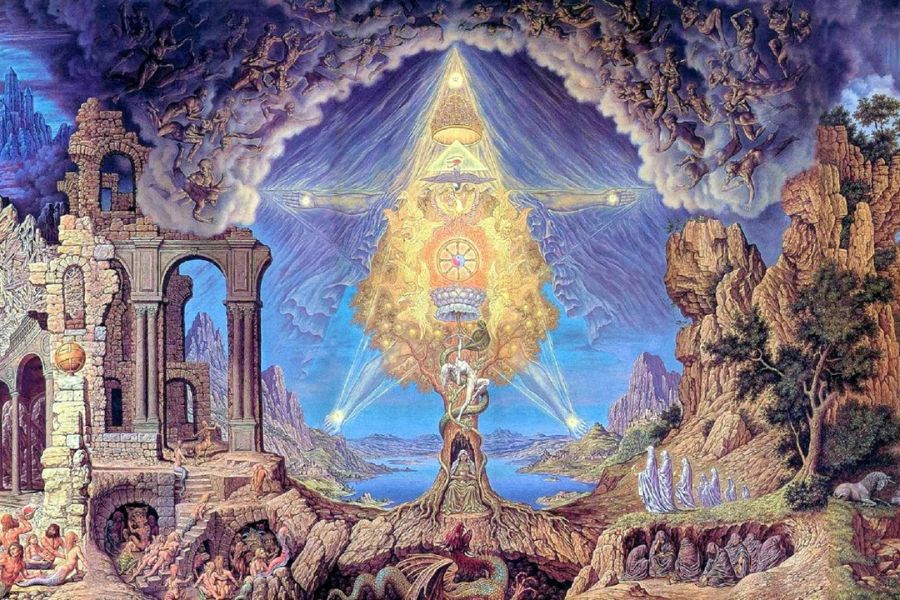In the context of esoteric and spiritual teachings, particularly those of Samael Aun Weor, the concept of transvaluation holds a central place in the process of inner transformation.
But what exactly does this transvaluation mean? According to Weor, it is not merely a superficial shift in values, but a profound understanding that leads to a revolution of the self. Transvaluation ultimately involves a radical reassessment of our egoistic, social, and material interests, and more importantly, the abandonment of these values in pursuit of something far greater: the quest for spiritual transformation through esoteric work.
The word transvaluation can be interpreted as a process of revaluation, but with an even deeper significance. According to Samael Aun Weor, transvaluation does not just suggest a shift in perspective on what is valued, but a true inversion of one’s worldview. In other words, what once seemed of utmost importance – money, power, social status – begins to be seen as fleeting, futile, and ultimately insignificant. In contrast, what truly acquires value is inner work, self-knowledge, and the pursuit of transcendental wisdom.
This process is unsettling to the common mind, which is accustomed to seeking fulfillment in external things. Transvaluation demands looking within, confronting one’s own defects and limitations, and understanding that these aspects of the ego are the true obstacles to spiritual realization. True change does not come from acquiring external things, but from the destruction of the ego and the liberation of the soul.
Weor observes, with disturbing depth, that resistance to transvaluation often appears disguised as a fear of death. Transvaluation is not limited to a superficial change in mindset but requires the symbolic death of the ego. The ego, which defines us as individuals and gives us a false sense of identity, is the greatest barrier on the spiritual path. When transvaluation is taken seriously, it challenges our fundamental belief that we must live at all costs. However, this resistance to the death of the ego is natural because, as Weor suggests, few truly wish to cease existing on all levels: physical, mental, and emotional.
True esotericism, according to Weor, demands immense courage. He speaks of the necessity of undergoing the Buddhist Annihilation, the process of total dissolution of the ego. For Theosophists and other more conventional esotericists, the idea of annihilation is terrifying, as it implies the death of the self. Society, for the most part, promotes the belief in the immortality of the ego and offers spiritual shortcuts that allow the individual to continue feeding their false identity. Often, these shortcuts take the form of promises of rewards after death, such as a glorious heaven or eternal life without suffering—concepts frequently offered by religious institutions that do not question the nature of the human ego.
Samael Aun Weor observes that in his experience as an esoteric teacher, few people truly seek the dissolution of the ego. Instead, he receives letters from people asking for powers, initiations, wealth, or better positions within Gnostic movements. This search for power, in Weor’s view, is a manifestation of the ego that wishes to remain intact, nourished, and reinforced. The idea of attaining enlightenment or wisdom without the ego being annihilated is a contradiction, a foolish pursuit that wastes time and energy.
For Weor, true enlightenment cannot be achieved without the death of the ego. The illusion that one can achieve some form of wisdom or enlightenment without undergoing the painful process of inner dissolution is ultimately a form of self-deception. Only by dying symbolically to everything that the ego represents can the soul be truly liberated and prepared for enlightenment.
Samael Aun Weor’s central teaching on transvaluation is clear: true spiritual transformation only occurs through the destruction of the ego, and this demands the courage to embrace the symbolic death of the self. The Gnostic esoteric path is not for the weak or those who fear the unknown. It is a path of profound self-knowledge, the annihilation of what is false and fleeting, to make way for a new way of being, purer and more connected to the Divine.
Transvaluation, therefore, is an invitation for deep reflection on the values that govern our lives. It calls us to question our priorities and understand that true spiritual work requires the renunciation of ego-driven pleasures and dedication to inner work. If we are not willing to symbolically die to ourselves, we will never experience the spiritual rebirth that offers true freedom and enlightenment.
As Weor wisely teaches: Only through death comes the new. Transvaluation, therefore, is the key to true transformation, and the death of the ego is the gateway to what is most sublime and transcendental in the human being.




















